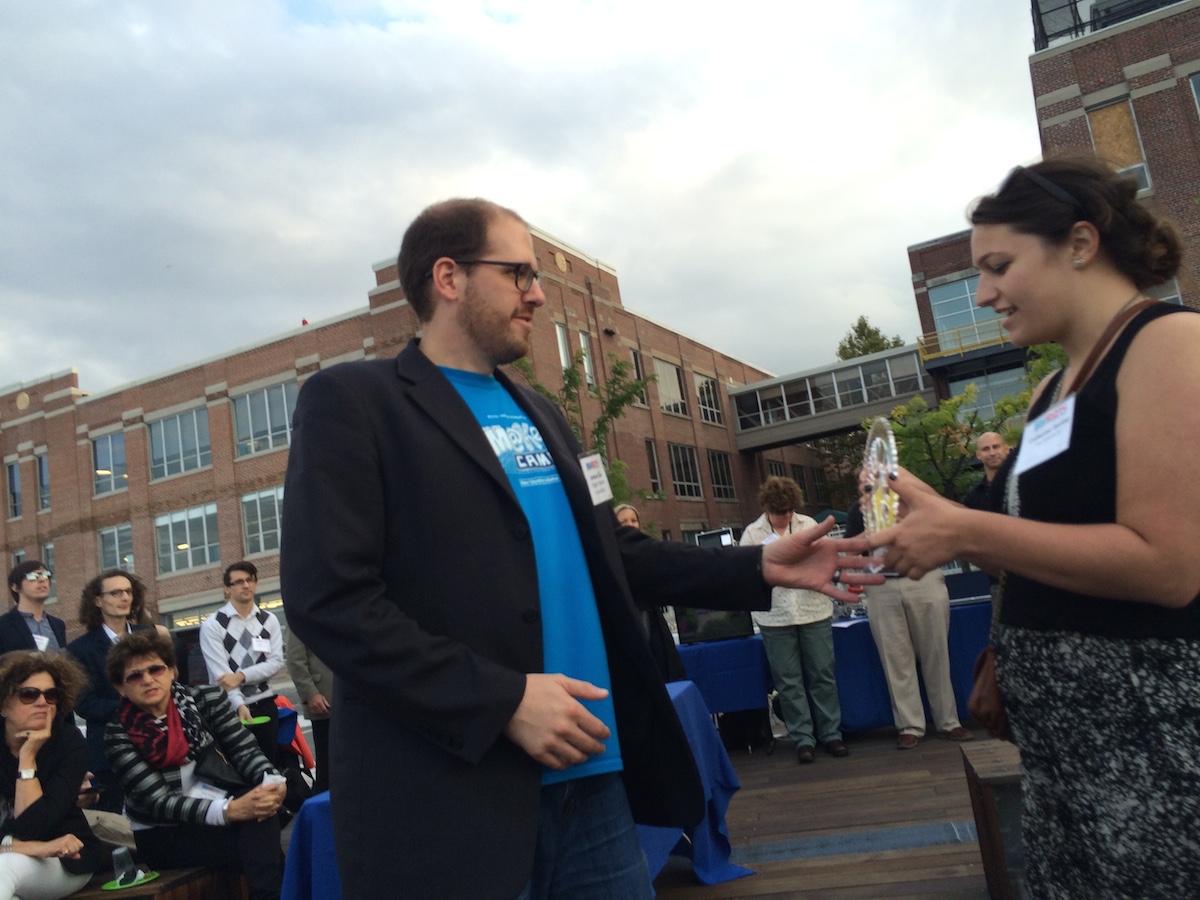Two years ago, after assigning his students at Baltimore’s Digital Harbor High School a web design project, Andrew Coy realized there was a need in today’s schools for more “tech” in their tech education. And not the building lamps kind. More like the building hovercrafts kind.
“I initially started off as a social studies teacher,” Coy said. “But because of my background in tech, I quickly transitioned into a tech integration specialist, helping other teachers learn how to use technology better in their classrooms as well as managing infrastructure for the school.”
https://www.youtube.com/watch?v=RLsAdna1BhU
The next step: Coy, 30, left city schools and, in a defunct city recreation center just two blocks away in Federal Hill, founded the nonprofit Digital Harbor Foundation, which now provides after-school programs for elementary, middle and high school students. Instead of lamps, Coy, with his employees and volunteers, help students build 3D printers and hovercrafts, design video games and even turn a broken piano into a digital jukebox.
When you make something that makes things ... it empowers you to say I can do large and amazing projects.
“Essentially, we are a youth-centered makerspace,” he said.
As for Coy’s own background, he’s is no stranger to nonprofits or to the web. He volunteered in Thailand after the 2004 Indian Ocean tsunami, an effort that included building a website for the support push. He later started a company that built websites for clients.
Though Coy’s foundation is unaffiliated with both the eponymous school and the city school system, it does get funding from the system, along with local institutions like the Maryland Institute College of Art, The Abell Foundation and businesses and incubators big and small and in and out of the business like Betamore, Advertising.com, DLA Piper and Comcast.

And besides donors, the organization has also attracted the attention of local officials. When Baltimore Mayor Stephanie Rawlings-Blake and Gov. Martin O’Malley joined Comcast officials in marking the extension of a program aimed at providing inexpensive internet access to low-income families, they held the announcement at the tech center. O’Malley and Rawlings-Blake went around the center and talked to students about their projects. At the event’s conclusion, several dozen laptops were given away to city students gathered at the event. along with several months of free internet access for their families.
Thanks to donors, the programs themselves are offered on a pay-what-you-can basis.
“We suggest an amount for certain programs,” Coy said. “Other programs are donation-based. But the main point is we never want finances to be a barrier to education.”
The tech center has two rooms, one for elementary programs, the other for middle and high school students. Classes include subjects like 3D printing, game design and animation.
For adults, the center offers city-supported hackathons (competitions over one or several days in fields like wearables and civic tech) and trains teachers in areas like 3D printing.

Jonathan Prozzi, the foundation’s program coordinator, came to Digital Harbor from Loyola University Maryland’s RadioEdu initiative. He said the foundation’s programs are attracting more and younger kids in recent months, with an average age of 12.
“If the kids coming to our center are any indication, there’s a huge interest,” he said. “They’re extremely hungry for and interested in it and they don’t have outlets for it at their schools, so a program like ours allows them to safely explore that.”
Some of the things students build in the foundation’s tech center on Light Street in Federal Hill are program projects. Others are passion projects.
“It’s more structured for the first semster but after that we ask them, what do you want to make?” Coy said. “And when you ask that question they start to come up with some pretty fun ideas.”
Coy spoke of one piano left behind from the space’s past life.
“We tried to get rid of it, but nobody wanted an old busted piano, so one day,we asked one of our ninth-graders here, ‘Hey, do you want to make a jukebox?'” he said. “She created this whole system of interactions where if you push keys, it picks a song on Spotify.”
Other key projects for Coy’s students include a hovercraft built using a leaf blower and even something as simple as a kit-built 3D printer.
“The moment that he built something that could build other things was a truly transformational for him, and I think that’s true of all people,” Coy said. “When you make something that makes things, it’s a lot different than any other experience. It empowers you to say I can do large and amazing projects.”

—
This story was originally produced for the Certificate in Multimedia Journalism program at the University of Maryland’s Philip Merrill College of Journalism.







